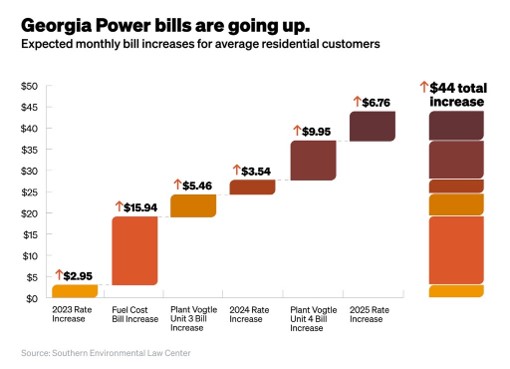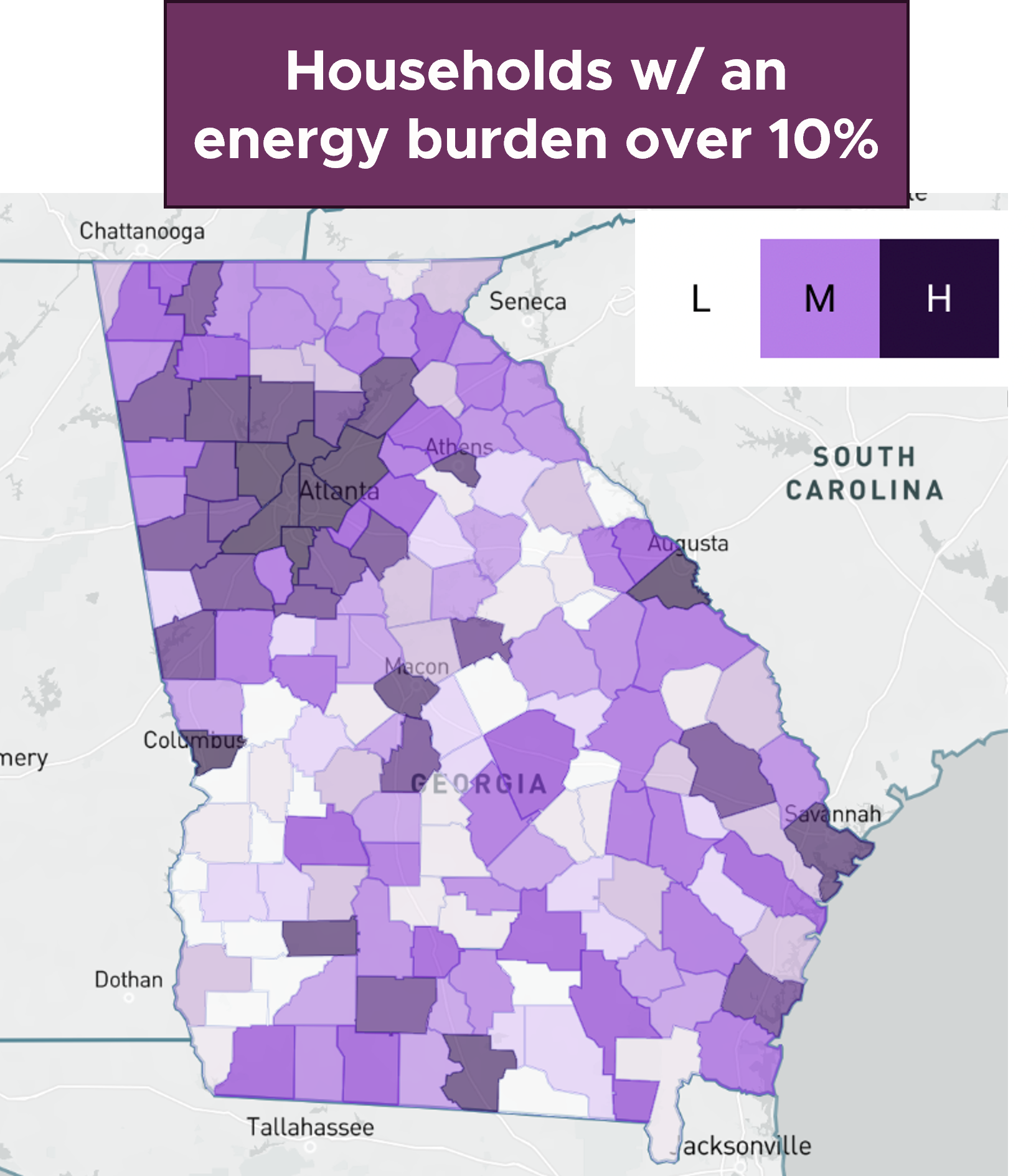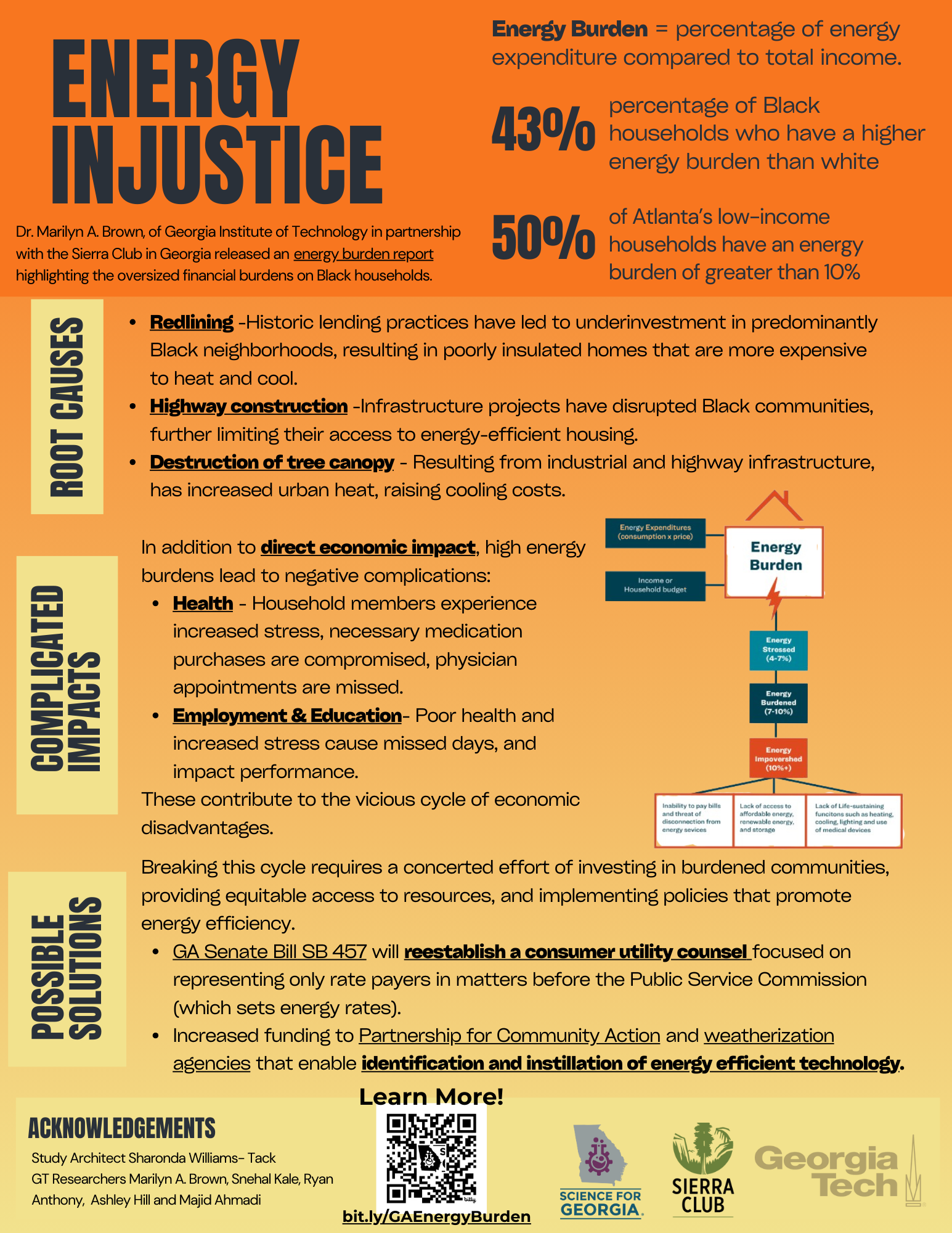Georgian’s power bills have gone up by also $45 in the last year.
These power bills are annoying for all of us, but when a power bill is too high relative to income it becomes a choice between electricity, rent, food, and medical bills. When bills reach over 7% of a household’s take-home-income, the household is considered “Energy Burdened” and when bills reach over 10% of income it is termed “Energy Impoverished.”
Programs exist to provide energy burden relief, but often those who can benefit are unaware or are unable to sign up (for example, they may need to sign up for the program at a county government office over an hour’s drive from their home).
On August 8th, Science for Georgia, the Sierra Club, GA WAND, and Brown & Associates hosted a presentation and workshop on Georgia’s Energy Burden, and what this means to you, your community, and how you can create change.
Below find more details and resources.


Energy Burden Report
Georgia Institute of Technology in partnership with the Sierra Club in Georgia released an energy burden report highlighting the oversized financial burden Black households face in Georgia.
The report shows how Black households in Georgia face disproportionately high energy burdens, including historic discrimination and disinvestment in infrastructure. The report goes a step further than similar studies by conducting surveys of energy-burdened households to find out what other consequences they face when they spend a significant portion of their income on energy bills.
Read the report and see the Slides: Energy Burden Report
Energy Burdens of Black Households in Georgia
Georgia Power, the PSC, and Your Power Bills
GA WAND and Brown & Associates have developed a workshop on how changes in policy change your rates. After a presentation on the report, they will led us in an interactive workshop. See the slides linked below
Resources
Organize & Advocate
Partnership for Community Action
American Council for an Energy-Efficient Economy – Energy.gov – Assessment of National and Metropolitan Energy Burden across the US
American Council for an Energy-Efficient Economy – Congress.gov – Testimony of Ariel Drehobl
Assistance Programs
Federal Weatherization Assistance – https://www.energy.gov/scep/wap/how-apply-weatherization-assistance
State Weatherization Assistance – https://gefa.georgia.gov/weatherization-assistance-program






